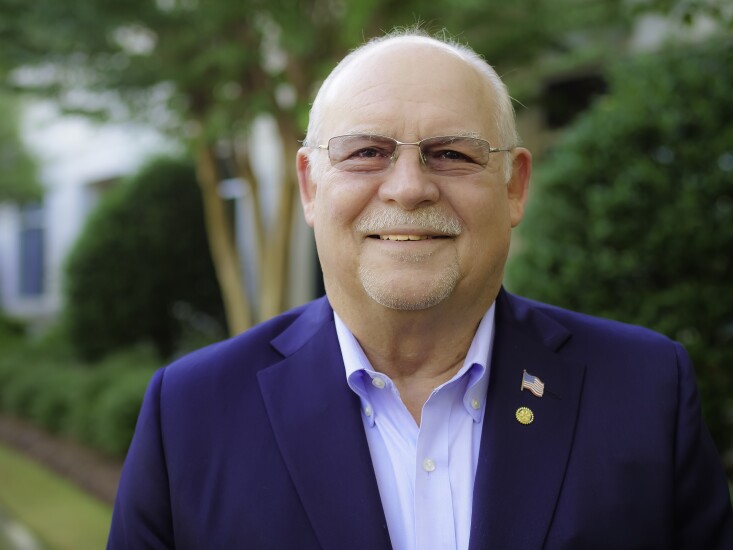
What are the biggest regulatory or congressional issues that still need to be addressed this year?
It's no secret that today's legislative environment is increasingly polarized compared to years past, but a gridlocked Congress isn't enough to halt credit union advocacy efforts. With just over half of the year left, Credit Union Journal reached out to credit unions and other industry leaders to gauge what regulatory and congressional issues are most at stake. From data privacy to robocalling, experts in the industry shared their priorities.
Some responses have been edited for length and clarity.

Marshall Boutwell, president and CEO of Peach State Federal Credit Union

Lucy Ito, president and CEO of the National Association of State Credit Union Supervisors
"NASCUS supports federal legislation making it permissible for financial institutions to provide financial services to state-authorized cannabis businesses and to

Randy Chambers, president of Self-Help Credit Union
"Because of this, legislative efforts to make homeownership and economic opportunity a reality for traditionally underserved communities continue to be critical concerns, including access to fair and affordable home loans, affordable housing availability, and curtailing predatory practices in areas such payday lending, overdraft fees and student loan debt. We are deeply concerned about the CFPB’s recent proposal to rollback the agency’s 2017 payday rule, especially its move to eliminate the commonsense requirement that a lender must check to see if a

Brian Best, president and CEO of GTE Financial
"Unfortunately, the extra time granted by Congress to retailers, where the fraud is easily obtained, has caused financial institutions major losses and also hardship to the consumer. Having your card compromised due to fraud not once but up to three times a year can create a terrible member experience.
"Florida today is ranked the No. 1 state for fraud and fourth state for identity theft. Tampa, where GTE Financial resides, is in the heart of it all, ranked third for fraud. In 2018, Florida’s total fraud losses were $84.2 million. In 2017, GTE Financial installed anti-skimming ATMs in all of our community financial centers because we wanted to take an extra step to protecting our members’ information and help them feel confident when using one of our machines.
"The laws for financial institutions to help members navigate where consumers can expect fraud is currently way behind the times. Currently, financial institutions are not allowed to communicate to consumers about where the fraud is originated, even though they have all the data. This has helped perpetuate and compound losses while helping the fraudsters continue to be successful in their efforts. This is obviously not the right approach but neither is enabling retailers by extending their conversion time to 2020.
"The imbalance of accountability between the retailer and the financial institutions is at its greatest. If the laws are going to contribute positively towards those not being held accountable for the losses and millions of fraud cases, then maybe a quick way to fix this is by having retailers pay for their lack of privacy and security around the consumers’ information. Rather than the credit union paying for the loss, the retailers should be responsible. I’m sure if they were held accountable, the scales would change and in the end, the consumers who we all should be protecting would finally win a small battle against fraud."

Greg Sawyers, product compliance officer at Temenos
"On July 31, 2018, the Department of the Treasury published a report where they discussed how to create economic opportunities. A couple of items that stood out to us were streamlining the regulatory environment, facilitating an environment for experimentation to foster innovation, and modernizing activity-specific regulations such as service partnerships between banks and non-banks. As the Department of the Treasury outlined in the report, and we agree, these items can help financial institutions enhance their competitive edge. This should definitely be a priority for our country’s leaders."

Carrie Hunt, EVP of government affairs at the National Association of Federally-Insured Credit Unions
"Credit unions are also unique in terms of how they are allowed to build capital to retain earnings and in addition, we still talk to Congress to see whether or not there's potential for delay so we can work these issues out. I do think that credit unions should plan for CECL to be effective in 2022, so they have to plan and we are still working to mitigate these impacts and to get the standard changed or delayed — so that's certainly one of our biggest priorities."

Anthony Hernandez, president of the Defense Credit Union Council
"In 2015, [the Department of Defense] extended MLA protections to a broader range of closed-end and open-end credit products. While DCUC supports the intent of the 2015 amendments, we see too many instances where effective small-dollar loans, debt consolidation packages, and GAP coverage for automobile loans have largely disappeared, leaving the field open to predatory lenders."

Ryan Donovan, chief advocacy officer of the Credit Union National Association
[...]
"On the regulatory front, our most pressing issue right now is the pending FCC rule on robocalls, which could not only limit credit unions’ ability to legitimately contact their members, but also threatens to deteriorate the trust relationship credit unions have built over the last century with their members. We’re very actively engaged with the commission to seek an immediate solution that meets the needs of legitimate business interests while protecting consumers from the scourge of robocalls. From a more big-picture standpoint, we continue to lean on the CFBP to delegate their exemption authority to the NCUA, while we engage with the latter to modernize, shifting toward technology-driving examination and supervision mechanisms while preserving its independent status."





